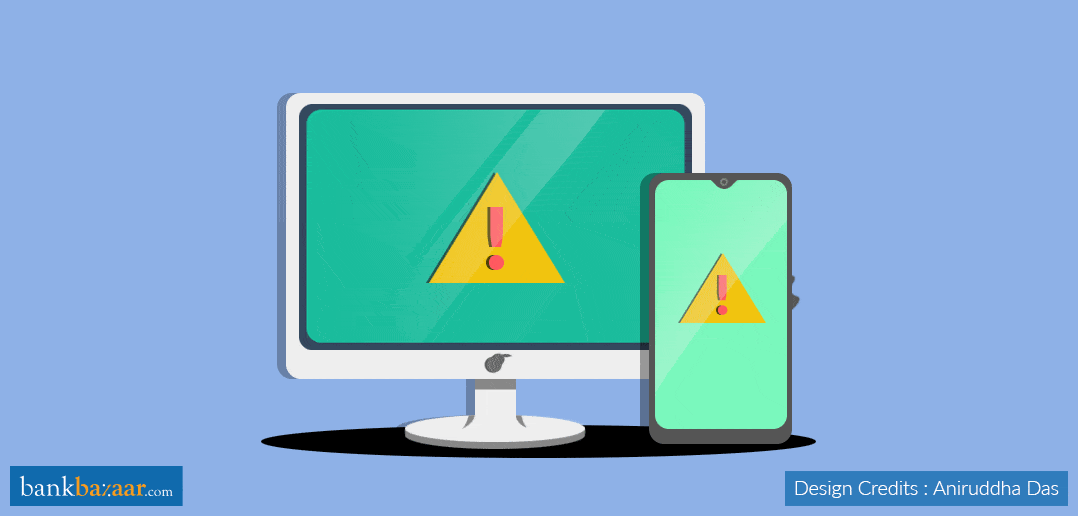Online transactions have witnessed an uptick since COVID-19 hit our lives. This has been accompanied by an increase in cyber frauds as well. Here’s how you can stay protected.

After demonetisation, the COVID-19 crisis sort of cemented the eclipse of cash. With physical stores closing down and people wanting to reduce exposure, people are going online to complete their financial transactions. This has been marked by an increase in digital frauds as well. Among all digital channels, the one that has seen the most rise in frauds is the Unified Payment Interface (UPI). Here are some of the frauds that can take place on the UPI platform:
1. Phishing scams
In this scenario, fraudsters send you a payment link via SMS and email. These fake bank URLs are almost identical to the original bank ones. If you happen to miss the difference and click the link, it will take you to the UPI payment app installed on your phone and will ask you to select any of the apps for auto-debit. Once you give permission, the amount will get debited from your UPI app immediately.
One way to avoid this trap is to not click on links in any SMS from unknown numbers. It’s a ploy to skim money from your account via the UPI app. Make a note of the official website and official email ID of your banker from their representatives or their official website. Clicking on a fake URL can also result in infecting your phone with malware/virus designed to steal crucial financial information stored in your device.
Also, avoid Googling a customer care number. You might just end up calling a fake customer care call centre. If you’re in doubt, check the official website of your bank or investment company.
Additional Reading: Lifestyle Changes To Retain Post Lockdown If You’re Looking To Save Money
2. Remote screen-mirroring tool
While working from home for long hours, many prefer larger screens for better viewing and are downloading remote mirror screening tools that can connect their phones and laptops through WiFi to larger displays like smart TVs. Many fraudsters pose as bank officials and can scam you by gaining remote access to your mobile phone screens through an app. One thing to note is that not all digital payment apps on Google Play Store or Apple Store are genuine. An unverified app can take information from your phone and gain control of your device.
Another way fraudsters can scam you is by posing as bank officials and calling you to download a third-party app for verification purposes. Once you download the app, they will gain remote access to your phone.
Additional Reading: Personal Finance In The Post COVID-19 World
3. Deceptive UPI handles
Many of these fake UPI pages on social media have words like NPCI, BHIM in them which lead people to believe that they’re genuine UPI pages. Fraudsters create such handles to trick you into downloading their fake UPI payment apps. Remember to never post your contact information on these pages. Many post screenshots of messages received on their UPI handles. Fraudsters can easily spot this and get in touch with you to scam you.
Additional Reading: How To Tide Over A Cash Crunch Amid COVID-19
4. Scams using your OTP, UPI PIN
An example of a recent UPI fraud is hackers sending “request money” links to customers. Once the customer clicks the link and authorises the transaction thinking they will receive money, the amount gets debited from their account. Another thing to be careful about is the OTP. When you make a transaction through your chosen UPI app, you will need to enter either a one-time password (OTP) or UPI PIN. For OTP authentication, your bank sends you an OTP through SMS on your mobile number registered with the bank. Once the OTP is verified, your transaction is processed. One of the most common ways in which fraudsters try to scam people is by convincing them to share their UPI PIN and/or OTP over the phone. Once they have the details, they can authenticate UPI transactions and steal money from the customer’s account. Never share confidential details like UPI PIN, OTP, etc. with anyone on the phone. Also, banks never call you to ask these details.
How To Avoid UPI Frauds:
a) Government agencies, banks or other financial institutions will never ask for financial information via SMS. In the case of a UPI fraud, report it to the bank or e-wallet firm and get the wallet blocked to prevent further losses. You can even report the incident to the police or the cyber-crime cell.
b) You should download only those apps which are authentic and verified by Google Play Store or Apple Store.
c) Never ignore the spam warning you get on your phone through the digital payments app. If a user has been reported earlier, a warning would show up while you are transacting with them. UPI apps like Google Pay, PhonePe, etc., alert the user with a warning if they are receiving a request from an unknown account.
While you’re protecting your health during these times, don’t ignore your finances. To explore your contactless and secure options, click the link below: